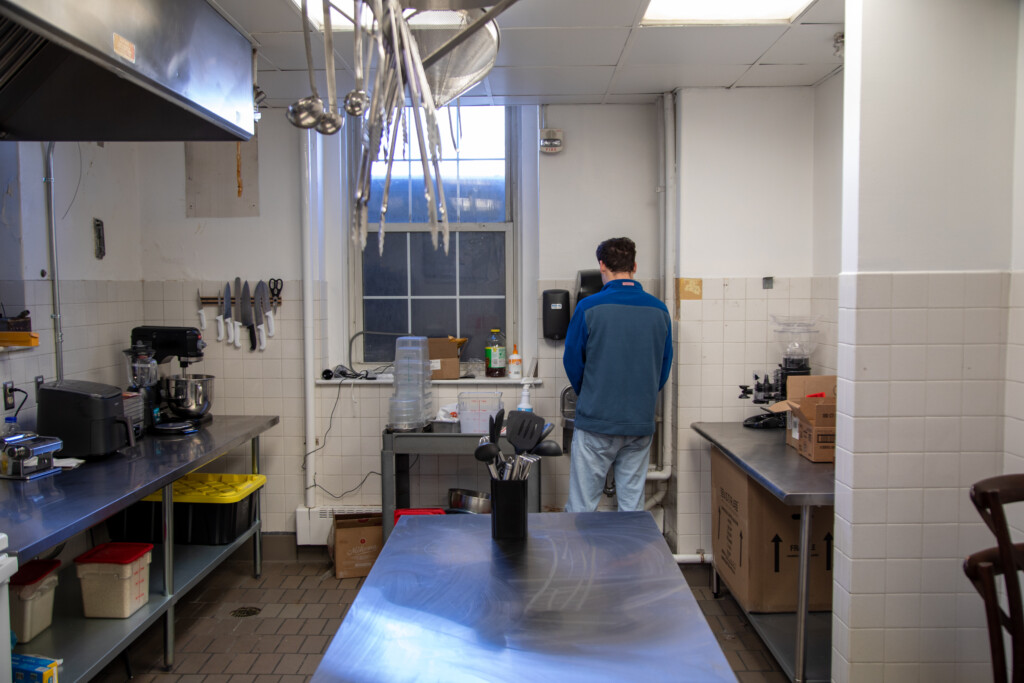After his impeachment on Nov. 16, 2009, former SA senator and freshman Chizoba Umesi chose to appeal the decision on the grounds that Article V, Section IV of the Students’ Association Bylaws was breached during his impeachment process.
The All-Campus Judicial Council released its decision on Monday to uphold the impeachment.
A trial was held on Jan. 29, allowing for petitioner Umesi and respondent, Speaker of the Senate and senior Kierstin Hughes, to clear the air on the details of the impeachment. It was an open hearing that attracted a mass of observers to the gallery.
Witnesses included Projects and Service co-chair and sophomore Alissa Brill and Deputy Speaker and sophomore Dan Cohn. The petitioner, respondent and witnesses agreed to an honesty statement prior to the trial’s commencement.
Senators in violation of the attendance requirement may be brought up for impeachment, but the bylaws do allow for some discretion based on how well the senator carries out his or her duties.
The first three consecutive unexcused absences from Senate committee meetings catalyzed Umesi’s impeachment, alongside claims by Projects and Services co-chairs Brill and Senator and sophomore Bradley Halpern that Umesi was apathetic during meetings.
Umesi was under the impression that the bylaws held Senate meetings and committee meetings as different entities.
He also claimed that his apparent indifference at meetings was due to his infancy in the Senate.
Opening statements were given by both petitioner and the respondent, in which the bylaw violation in question was cited and an overview of events described. Umesi was the first to divulge.
‘I was impeached because I missed three office hours for the Projects and Services Committee,” Umesi said at the hearing. ‘However, I’m appealing that decision [due to] the fact that it wasn’t just. The office hour was misadvertised during the first three weeks of my Senate run. I was impeached after seven weeks. By then, I’d changed my attitude about Senate. I changed my work habit about Senate.”
Umesi was appealing Article V., Section 4 of the Senate bylaws, which states that any senator with two unexcused absences or a total of four absences during an elected term of the Senate will be automatically put on the agenda of the next meeting for consideration of removal.
‘After my two unexcused absences, none of that happened,” Umesi said.
‘This caused my belief that the Projects and Services Committee absences were [not part of that],” he said.
Hughes proceeded shortly thereafter with an explanation of the Senate’s reasoning.
‘The motion for his removal was put on the agenda for this meeting which was set by the Steering Committee on the previous evening,” Hughes said. ‘While his attendance itself was nearly perfect at weekly Senate meetings, his record was incomplete for his mandatory weekly committee office hours.”
Every senator is required to participate in committee work, and each committee has its own attendance policies. Brill and Halpern govern the Projects and Services Committee and arranged to hold their meetings as bi-weekly office hours. The pair had announced that committee members were to communicate any conflicts with meeting times to them.
‘[We] made attendance expectations explicit,” Hughes said.
Umesi claimed that he was a member of the committee and that his lack of a leadership role was reason to miss a few of the office hours. He also declared that after three weeks of his Senate run, he was informed that it was mandatory to go to Projects and Services – hence, he began attending every meeting.
His first three absences were due to previous engagements of tutoring and church, but Umesi changed his schedule later in the semester so he would be able to attend the office hours.
Both Hughes and Cohn brought to attention the fact that, on Sept. 20, they gave the new senators an incorrect explanation of the attendance policy. On Nov. 16 they informed the senators of the incorrect statement made earlier and then stated the correct policy.
‘We did, unfortunately, give a misinterpretation that was stricter than the interpretation under which Chizoba was removed,” Cohn said. ‘We didn’t misinterpret it in a way that was lax.”
On Feb. 1, the ACJC decision was released. The council unanimously upheld the impeachment of Umesi on the grounds that the Senate did not breach Article V, Section IV of the bylaws, that excessive absence from either Senate meetings or Committee meetings was material for removal, and that the petitioner did not fully educate himself on the SA Constitution and bylaws and was therefore unable to properly fulfill his duties.
A complete explanation of the ACJC decision is available on the SA Web site.
Ostrander is a member of the class of 2013.

